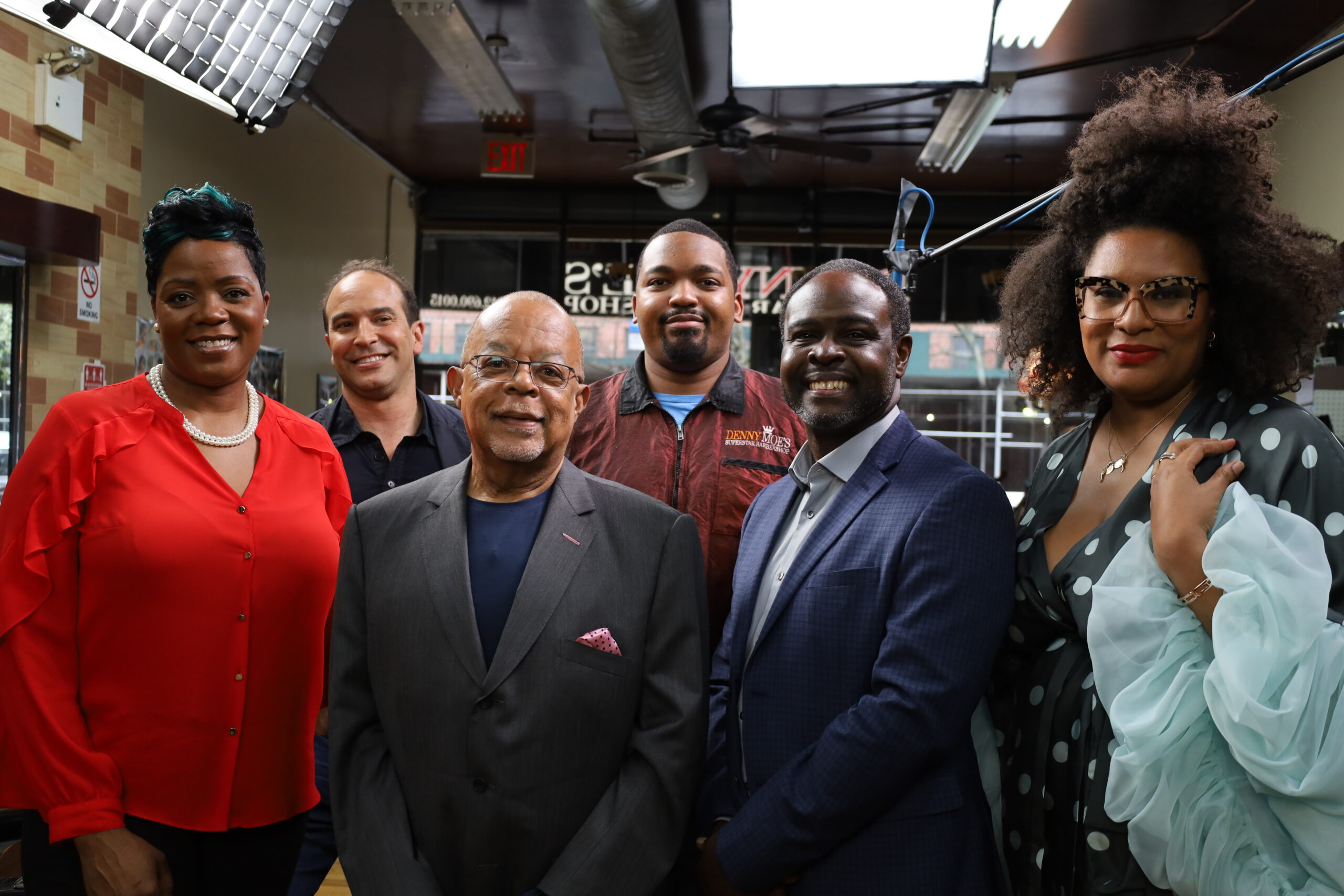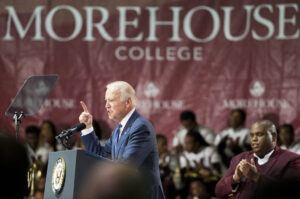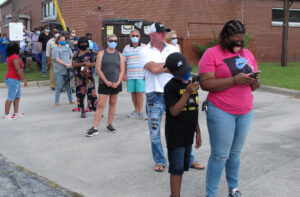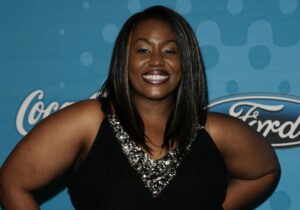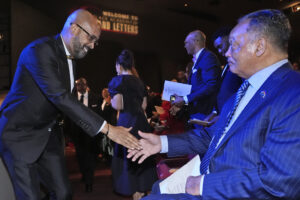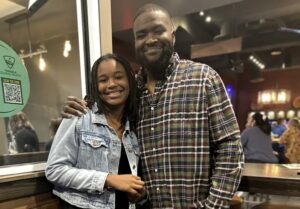Among Black people, there are certain topics that are OK to discuss in racially mixed company and there are those topics Black people feel more comfortable talking about with only other Black people.
This dynamic and more are tackled in the historical documentary series “Making Black America: Through the Grapevine” hosted by Prof. Henry Louis “Skip” Gates on PBS. The insightful and extensive four-episode series explores how Black-oriented communication and networking in the United States evolved from 1775 to the early 2020s. Gates also is one of the show’s executive producers and writers. “Making Black America: Through the Grapevine” premieres the first episode October 4. The remaining episodes air on October 11, October 18, and October 25.
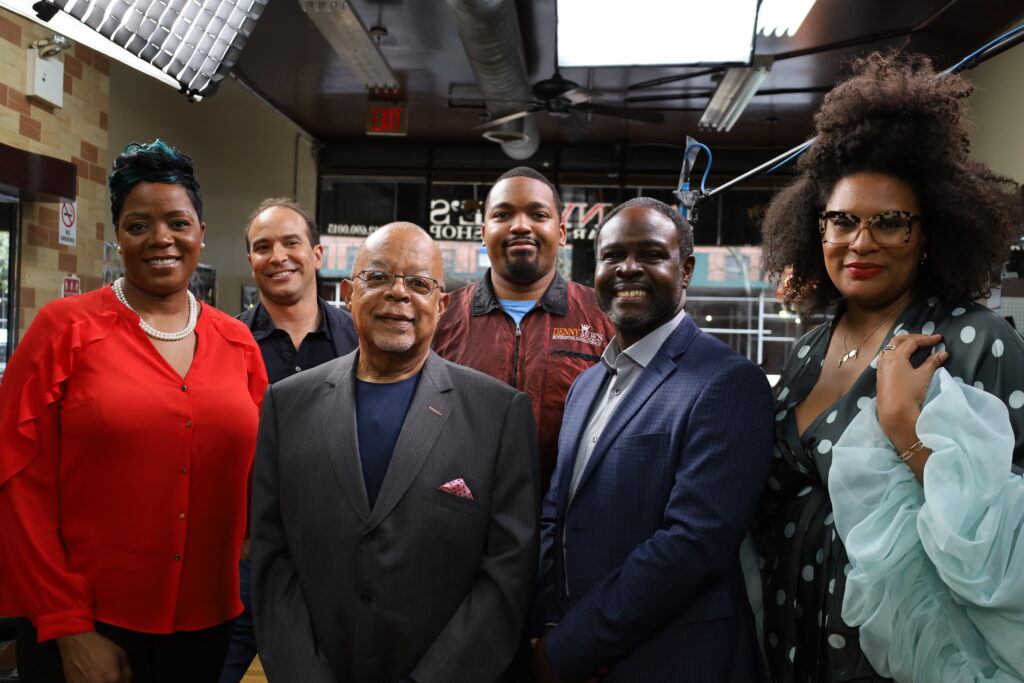
Gates says in the opening narration, “Black Americans have, with great ingenuity and imagination, created a world on the other side of the color line, a world with its own values and rules, a world behind what W.E. B. Du Bois called The Veil.”
“Making Black America: Through the Grapevine,” which unfolds in chronological order, lifts that veil to reveal a wide range of topics on how Black communication and social groups helped shape Black life in America. The series covers groups that formed specifically to serve the needs of Black people, whether they were formal groups (such as labor unions and schools) or informal groups found in barbershops, beauty salons, and what used to be called “rent parties” to help Black folks raise money during hard economic times.
Episode 1 focuses on how Black people created social networks (such as Prince Hall Freemasonry) during and after enslavement, when Black people were often denied formal educations, living-wage jobs, and land ownership, and had to figure out ways to get these resources. Episode 2 chronicles how the post-Civil War Reconstruction period and the Jim Crow era of racial segregation led to more Black self-reliance and the creation of institutions such as the National Association for the Advancement of Colored People (NAACP) and historically black colleges and universities (HBCUs).
Episode 3 covers the civil rights movement that blossomed from grassroots activities, and explores how Black-owned media (such as Ebony and Jet magazines) increased in national prominence and influence. Episode 4 continues with the emergence of the Black Power revolution, the Black Arts Movement, and explores how social media and computer technology today help fuel Black Twitter and the Black Lives Matter movement.
Each episode begins with Gates having an informal group discussion with a variety of notable Black people in a setting that represents the theme of that respective episode. In Episode 1, Gates meets at a literary club with actor André Holland, Boston City Council member Andrea Campbell, Prince Hall mason D’Andre Fernandez, and poet laureate/author Porsha Olayiwola. Episode 2 shows Gates hanging out at a barbershop with barbershop owner Dennis Mitchell Jr., educational equity advocate Naneka Brathwaite, art expert Bernard Lumpkin, population health professor Joseph Ravenell, and beauty journalist Julee Wilson.
In Episode 3, a rent party is recreated, as Gates plays bid whist with friends such as attorney/civic leader Flash Wiley, jazz musician Jason Moran, law professor Ronald Sullivan, real estate developer Richard Taylor, and corporate executive Benaree Wiley. And in Episode 4, Gates gathers around a welcome table at a Black-American cultural center with hip-hop media personality Fab 5 Freddy, Newark Mayor Ras Baraka, activist Chelsea Miller, historian Elizabeth Hinton, and journalist/media executive Mark Whitaker.
In addition, “Making Black America: Through the Grapevine” has numerous exclusive interviews and commentary from academics, civil rights leaders and historians, who are mostly Black-American. They include activist/University of California at Santa Cruz Prof. Angela Davis, United Negro College Fund President/CEO Michael L. Lomax, Princeton University professor Imani Perry, Howard University Prof. Dana Williams, and former Weeksville Heritage Center director Rob Fields.
The directors explain the origin of the docuseries
“Making Black America: Through the Grapevine” directors/producers Stacey L. Holman (who directed Episodes 1 and 2) and Shayla Harris (who directed Episodes 3 and 4) previously worked with Gates on the 2021 PBS docuseries “The Black Church: This Is Our Story, This Is Our Song.” Black News & Views recently spoke with Holman and Harris to get the behind-the-scenes story of “Making Black America: Through the Grapevine.”
The origins of the project began while making “The Black Church,” when Gates came up with the idea to do a series about communication and networking in Black-American communities.
“He just kept drawing on, ‘What do these organizations mean to a community? How are they important to African Americans?’ Something outside of ‘the struggle,’ what is happening behind The Veil,” Holman said of Gates. “It starts with Skip’s idea, and then he tosses it to us.”
Added Harris, “We had to be pretty intentional about the organizations featured, and to make sure that they all thematically made sense, which is what we tried to say with the series. Even at the darkest periods of American history, African Americans were gathering. They were supporting each other, affirming each other. They were surviving, they were thriving, they were innovating, they were creating culture. That is how we helped curate the series and find the stories that collectively told one cohesive theme. Some of these stories could have their own documentaries, for sure.”
One of the most admirable things about this series is that it has a real gender balance in presenting the contributions of Black people, with Black women given the necessary credit where credit is due. For example, the Atlanta washerwomen strike of 1881 led to the labor union movement that helped a lot of Black people in worker rights. Black women were also at the forefront in educating Black people informally and starting book clubs, at a time when Black people in America, even after the Emancipation Proclamation, weren’t allowed to finish high school or attend college.
“As women filmmakers and as people who are really conscious of the fact that this is going out to a super-broad audience on PBS, it was really important for us that this reflects the full contribution of this community,” Harris said.
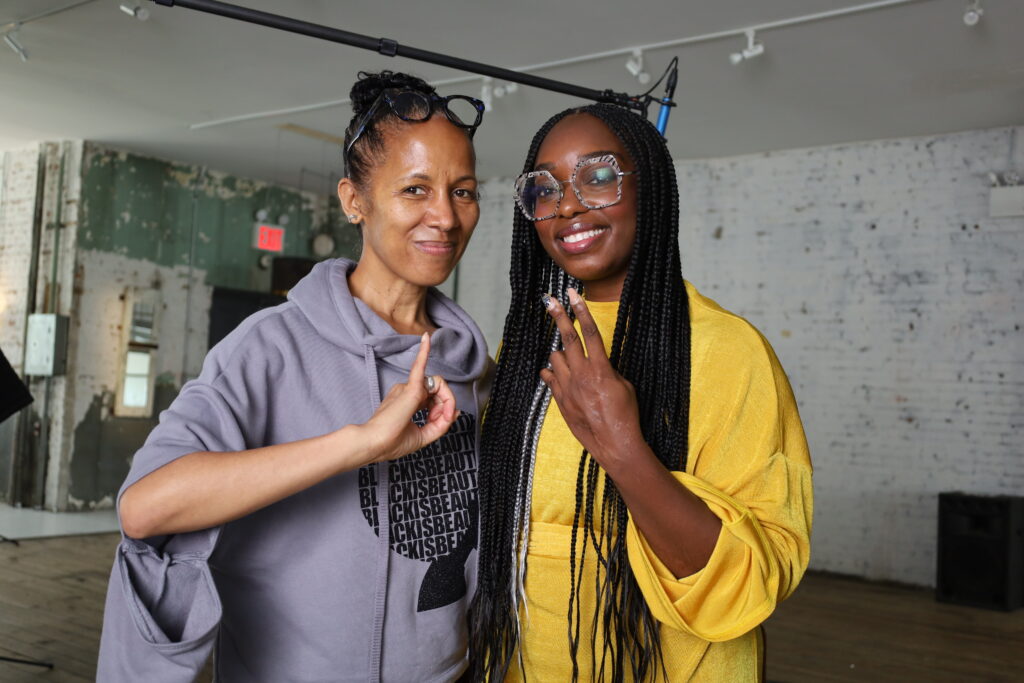
Surprises for the filmmakers
Even though Harris and Holman are both extremely knowledgeable about Black-American history, working on “Making Black America” did result in some surprises for these directors.
Said Harris, “For me, that was the period between the Great Migration and the civil rights movement. There was an informal economy, with rent parties … and the jubilees and the culture were really fascinating.”
She continued, “There was all this activism happening around unions. The original March on Washington was happening in this period. So, for me, that was a really cool opportunity to shine a light on a moment in American history that doesn’t really get looked at through this lens.”
Black Twitter gets its own segment in the series. University of California Prof. Allissa Richardson calls the phenomenon the “intersection of intellectualism and comedy.”
Richardson explains its deep association with Black culture this way: “I think (of) the brevity of it and the wit and the ability to tap into this sense of humor that we don’t necessarily see on Facebook. … And I think there is a certain way Twitter is used as a news service media platform to get out information … faster (than traditional media).”
As an example, RIchardson brought up the 2014 fatal police shooting of Mike Brown, an unarmed Black teen, in Ferguson, Missouri, and how Twitter was crucial to keeping Black America informed about the case. “Twitter … has a sort of democratizing effect — a lot of people can engage with it,” she said.
Holman said that “Making Black America: Through the Grapevine” affected how she sees her own family history and the history of Black Americans: “My mom … was part of a book club. And she’s still part of two book clubs. Doing this series, it resonated with me even more. My mom, what she was doing in the ‘70s wasn’t new. This has been going on since the 1800s.”
Holman also noted that the story of the Atlanta washerwomen strike was inspirational to her and an example of the series’ overall message about Black people.
“It doesn’t matter who you are and where you are, you can make a difference,” she said. “It doesn’t matter what your economic status is, your voice, you have agency, and you can build community, and that community can affect social change.”

